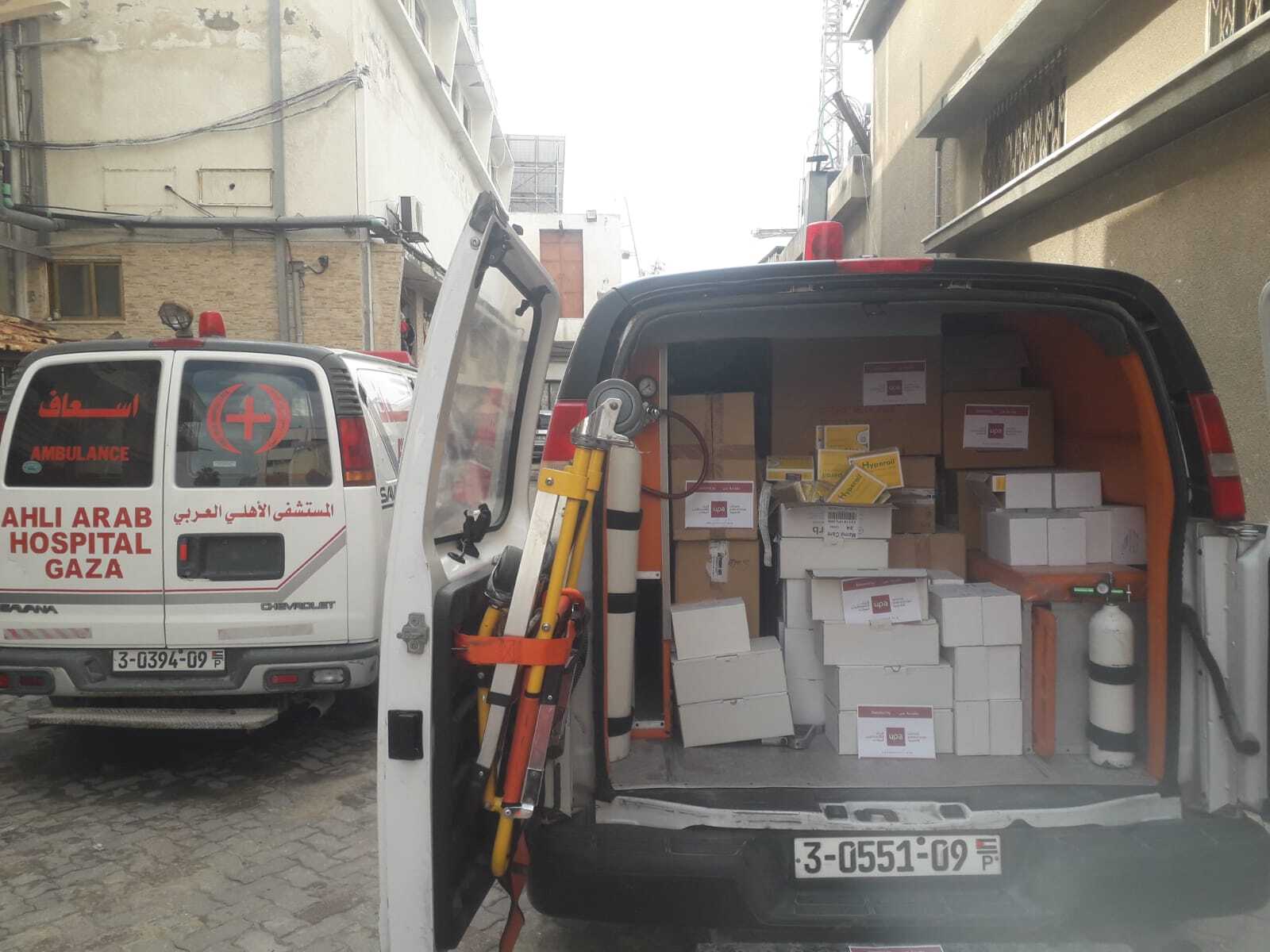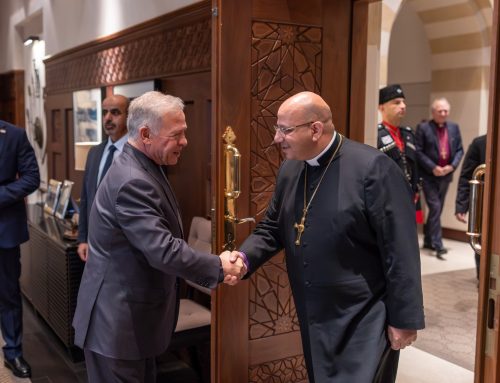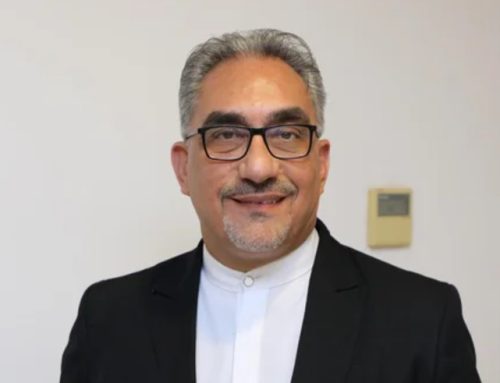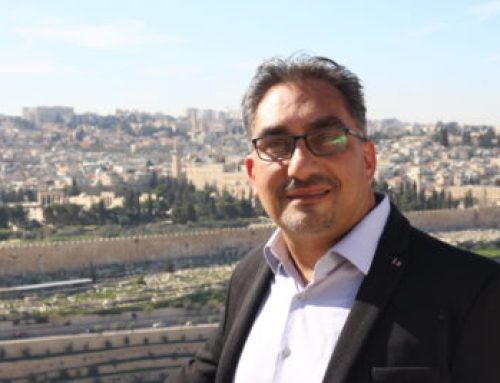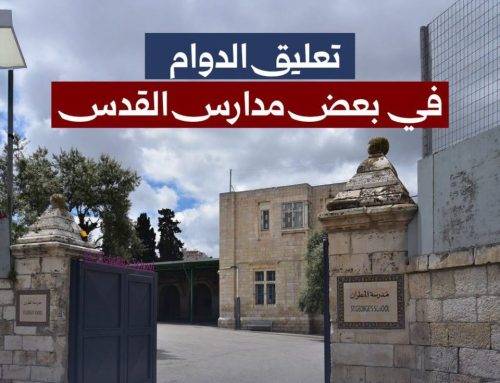In an exemplary show of determination and commitment, Ahli Arab Hospital captures attention once again for its resilience and heroism as the majority of Gaza’s medical facilities are forced to close their doors for the foreseeable future. Ahli, a singular beacon of hope in northern and central Gaza, continues to serve many more patients than the staff and facilities are equipped to accommodate. Despite these—and more—extraordinary circumstances and setbacks, the remarkably brave medical team and staff at Ahli Hospital continue to persevere and work tirelessly for the sick, injured, distressed, and displaced.
Ahli, an 80-bed hospital, faces a staggering influx of patients as the conflict escalates, receiving approximately 300 per day. The facility is stretched well beyond capacity, necessitating the utilization of all available spaces within the building to accommodate the growing need for medical care, including the on-site library, pharmacy, and chapel. Ahli Hospital has increased their surgical capacity from two to four operating theaters and is now performing an astonishing 18-22 surgeries per day since the complete shuttering of major nearby hospitals
To assist their over-taxed medical team, Ahli Hospital is now rotating in additional staff from hospitals that are no longer operational. To aid in these efforts, an inspiring number of volunteers have emerged from those sheltering on-site to serve and offer support where needed. Despite the increased strain on its exhausted staff and resources, the hospital maintains partial functionality through the support of long-standing relationships with local suppliers for medical consumables. Your generosity makes that possible.
Ahli Hospital continues to operate in crisis mode. The hospital reports a significant number of patients, mostly children, suffering from burns caused by airstrikes and unsafe heating mechanisms amid cramped spaces. As Ahli addresses a surge in patients with infectious diseases due to deteriorating hygiene, a lack of potable water, and crowded conditions in Gazan shelters, the consumption rate of supplies and medicines, particularly antibiotics, remains high. Since the war’s outbreak on October 7, you have demonstrated extraordinary generosity, rallying together to raise over $3 million for Ahli Hospital. This collective effort has been instrumental in saving thousands of lives.
The repercussions of the conflict extend beyond Ahli Arab Hospital, affecting all ministries of the Diocese of Jerusalem across the Holy Land.
A sharp increase in unemployment and financial instability over the months since the war’s outbreak has created a major economic downturn. In the West Bank, dangerous spikes in settler violence targeting Palestinian communities are surging, contributing to increasing isolation and fomenting fear and panic throughout the West Bank, keeping people in their homes. Ongoing artillery exchanges between Gaza, Israel, and Lebanon along with border checkpoint delays and closures have made travel between Israel and the Occupied Territories of Palestine difficult to impossible.
Because of this, Palestinians throughout Israel and the Occupied Territories are grappling with sharply rising unemployment rates. Palestinian residents of the West Bank and East Jerusalem who work in Israeli firms, tourism, and related sectors are severely impacted, leading to furloughs that directly affect Diocese of Jerusalem schools, centers, and healthcare institutions. Families are increasingly unable to cover the costs of school tuition and medical services. Due to the closure and separation of West Bank areas, income generated by Diocese of Jerusalem schools and health institutions has plummeted.
The suspension of Holy Land pilgrimages further compounds these economic challenges. This results in a loss of income, both from guesthouses and St. George’s College, which is crucial for bridging the cost of healthcare and education for those unable to afford these services.
By afedj.org

